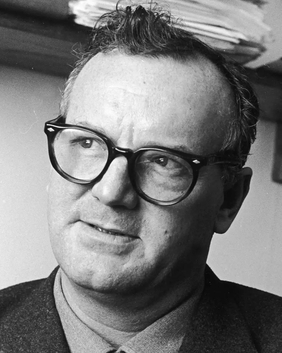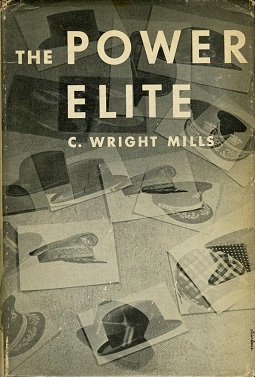
Industrial sociology, until recently a crucial research area within the field of sociology of work, examines "the direction and implications of trends in technological change, globalization, labour markets, work organization, managerial practices and employment relations" to "the extent to which these trends are intimately related to changing patterns of inequality in modern societies and to the changing experiences of individuals and families", and " the ways in which workers challenge, resist and make their own contributions to the patterning of work and shaping of work institutions".

The bourgeoisie are a class of business owners and merchants which emerged in the Late Middle Ages, originally as a "middle class" between peasantry and aristocracy. They are traditionally contrasted with the proletariat by their wealth, political power, and education, as well as their access to and control of cultural, social and financial capital.

Karl Marx's theory of alienation describes the estrangement of people from aspects of their human nature as a consequence of the division of labor and living in a society of stratified social classes. The alienation from the self is a consequence of being a mechanistic part of a social class, the condition of which estranges a person from their humanity.

A white-collar worker is a person who performs professional service, desk, managerial, or administrative work. White-collar work may be performed in an office or other administrative setting. White-collar workers include job paths related to government, consulting, academia, accountancy, business and executive management, customer support, design, economics, engineering, market research, finance, human resources, operations research, marketing, public relations, information technology, networking, law, healthcare, architecture, and research and development. In contrast: blue-collar workers perform manual labor or work in skilled trades; pink-collar workers work in care, health care, social work, or teaching; and grey-collar jobs combine manual labor and skilled trades with non-manual or managerial duties.

In Marxist philosophy, the term commodity fetishism describes the economic relationships of production and exchange as being social relationships that exist among things and not as relationships that exist among people. As a form of reification, commodity fetishism presents economic value as inherent to the commodities, and not as arising from the workforce, from the human relations that produced the commodity, the goods and the services.

Charles Wright Mills was an American sociologist, and a professor of sociology at Columbia University from 1946 until his death in 1962. Mills published widely in both popular and intellectual journals, and is remembered for several books, such as The Power Elite, White Collar: The American Middle Classes, and The Sociological Imagination. Mills was concerned with the responsibilities of intellectuals in post–World War II society, and he advocated public and political engagement over disinterested observation. One of Mills's biographers, Daniel Geary, writes that Mills's writings had a "particularly significant impact on New Left social movements of the 1960s era." It was Mills who popularized the term New Left in the U.S. in a 1960 open letter, "Letter to the New Left".

The Society of the Spectacle is a 1967 work of philosophy and Marxist critical theory by Guy Debord where he develops and presents the concept of the Spectacle. The book is considered a seminal text for the Situationist movement. Debord published a follow-up book Comments on the Society of the Spectacle in 1988.
Welfare capitalism is capitalism that includes social welfare policies and/or the practice of businesses providing welfare services to their employees. Welfare capitalism in this second sense, or industrial paternalism, was centered on industries that employed skilled labor and peaked in the mid-20th century.

A pink-collar worker is someone working in the care-oriented career field or in fields historically considered to be women's work. This may include jobs in the beauty industry, nursing, social work, teaching, secretarial work, upholstery, or child care. While these jobs may also be filled by men, they have historically been female-dominated and may pay significantly less than white-collar or blue-collar jobs.

The Power Elite is a 1956 book by sociologist C. Wright Mills, in which Mills calls attention to the interwoven interests of the leaders of the military, corporate, and political elements of society and suggests that the ordinary citizen in modern times is a relatively powerless subject of manipulation by those three entities.
Social alienation is a person's feeling of disconnection from a group – whether friends, family, or wider society – with which the individual has an affiliation. Such alienation has been described as "a condition in social relationships reflected by (1) a low degree of integration or common values and (2) a high degree of distance or isolation (3a) between individuals, or (3b) between an individual and a group of people in a community or work environment [enumeration added]". It is a sociological concept developed by several classical and contemporary theorists. The concept has many discipline-specific uses and can refer both to a personal psychological state (subjectively) and to a type of social relationship (objectively).
Class stratification is a form of social stratification in which a society is separated into parties whose members have different access to resources and power. An economic, natural, cultural, religious, interests and ideal rift usually exists between different classes.
Some Marxists posit what they deem to be Karl Marx's theory of human nature, which they accord an important place in his critique of capitalism, his conception of communism, and his materialist conception of history. Marx does not refer to human nature as such, but to Gattungswesen, which is generally translated as "species-being" or "species-essence". According to a note from Marx in the Manuscripts of 1844, the term is derived from Ludwig Feuerbach's philosophy, in which it refers both to the nature of each human and of humanity as a whole.
The following events related to sociology occurred in the 1950s.
In the United States, the concept of a working class remains vaguely defined, and classifying people or jobs into this class can be contentious. Economists and pollsters in the United States generally define "working class" adults as those lacking a college degree, rather than by occupation or income. Many members of the working class, as defined by academic models, are often identified in the vernacular as being middle-class, despite there being considerable ambiguity over the term's meaning. According to Frank Newport, "for some, working class is a more literal label; namely, an indication that one is working."
Marxist humanism is an international body of thought and political action rooted in a humanist interpretation of the works of Karl Marx. It is an investigation into "what human nature consists of and what sort of society would be most conducive to human thriving" from a critical perspective rooted in Marxist philosophy. Marxist humanists argue that Marx himself was concerned with investigating similar questions.
Relations of production is a concept frequently used by Karl Marx and Friedrich Engels in their theory of historical materialism and in Das Kapital. It is first explicitly used in Marx's published book The Poverty of Philosophy, although Marx and Engels had already defined the term in The German Ideology.
Classical Marxism is the body of economic, philosophical, and sociological theories expounded by Karl Marx and Friedrich Engels in their works, as contrasted with orthodox Marxism, Marxism–Leninism, and autonomist Marxism which emerged after their deaths. The core concepts of classical Marxism include alienation, base and superstructure, class consciousness, class struggle, exploitation, historical materialism, ideology, revolution; and the forces, means, modes, and relations of production. Marx's political praxis, including his attempt to organize a professional revolutionary body in the First International, often served as an area of debate for subsequent theorists.
The socialist mode of production, or simply (Marxist) socialism or communism as Karl Marx and Friedrich Engels used the terms communism and socialism interchangeably, is a specific historical phase of economic development and its corresponding set of social relations that emerge from capitalism in the schema of historical materialism within Marxist theory. The Marxist definition of socialism is that of production for use-value, therefore the law of value no longer directs economic activity. Marxist production for use is coordinated through conscious economic planning. According to Marx, distribution of products is based on the principle of "to each according to his needs"; Soviet models often distributed products based on the principle of "to each according to his contribution". The social relations of socialism are characterized by the proletariat effectively controlling the means of production, either through cooperative enterprises or by public ownership or private artisanal tools and self-management. Surplus value goes to the working class and hence society as a whole.
Social ownership is a type of property where an asset is recognized to be in the possession of society as a whole rather than individual members or groups within it. Social ownership of the means of production is the defining characteristic of a socialist economy, and can take the form of community ownership, state ownership, common ownership, employee ownership, cooperative ownership, and citizen ownership of equity. Within the context of socialist economics it refers particularly to the appropriation of the surplus product, produced by the means of production, or the wealth that comes from it, to society at large or the workers themselves. Traditionally, social ownership implied that capital and factor markets would cease to exist under the assumption that market exchanges within the production process would be made redundant if capital goods were owned and integrated by a single entity or network of entities representing society. However, the articulation of models of market socialism where factor markets are utilized for allocating capital goods between socially owned enterprises broadened the definition to include autonomous entities within a market economy.









